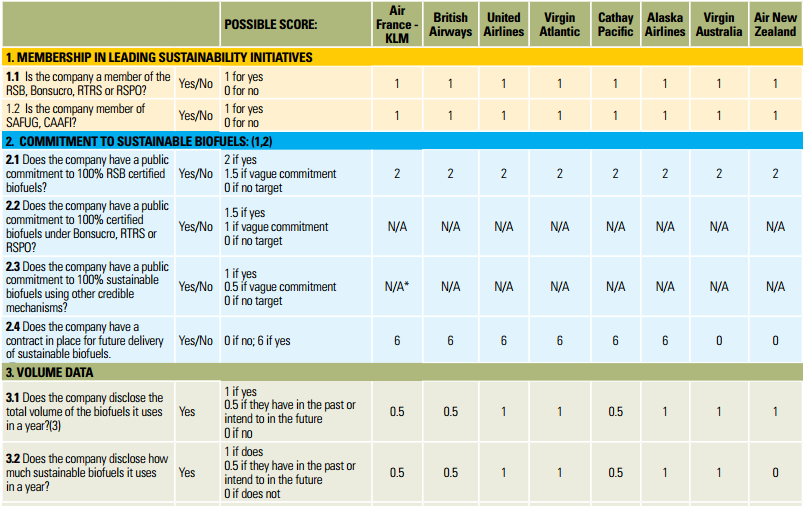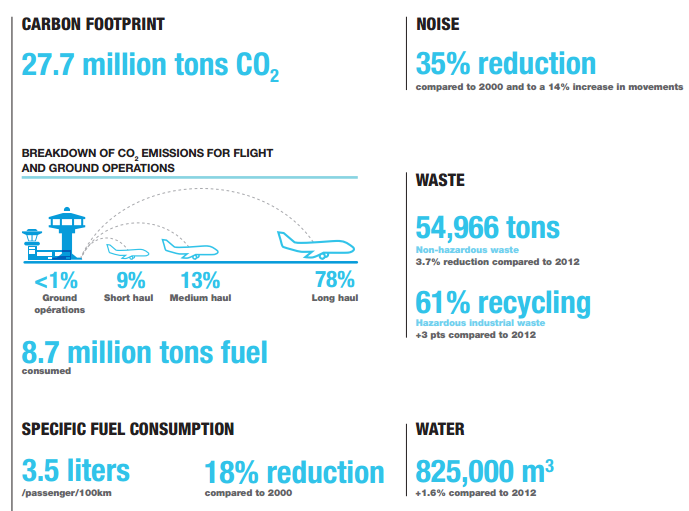Managing performance at operational level – Airline sustainability

The Natural Resources Defense Council (NRDC) is an international nonprofit environmental organization, founded in 1970, whose mission is to protect the worlds’ resources, the public health and the environment worldwide.
As part of its efforts, the organization monitors several industries that require improvement in order to achieve higher sustainability levels in the future. The airline industry is one of them. It has committed to cut net carbon emissions by 2050, to half of the level achieved in 2005.
For the moment, the aviation industry produces more than 650 million metric tons of CO2 emissions into the atmosphere annually. Even if in percentages this is not much, 2% of the annual CO2 emission, figures will triple in the next decades, together with the industry growth, unless actions are taken to unlink this growth from that of emissions.
To make sure the airline industry will achieve its objective, the NRDC has been monitoring the progress achieved year by year, since 2013. In 2014, the survey sent to assess performance in this field was delivered to 32 airlines, out of which only 17 responded. The results showed that top 5 performers were Air France-KLM, British Airways, United Airlines, Virgin Atlantic and Cathay Pacific.
Performance is reported by using a Scorecard that evaluates the airlines’ adoption of biofuels, the usage of leading sustainability certification standards, the initiatives taken to promote sustainability and the monitoring of sustainability KPIs.
The Scorecard is structured into 5 perspectives, 5 key areas related to the use of sustainable certified airline biofuels. The survey answers had been noted under each perspective. Results are then checked with data available on the airlines’ websites or via phone, directly with the company’s representatives. The survey was formed from closed-ended questions, and the rating achieved was based on the Yes or No answer received.
For a more accurate performance reporting, besides the sent survey, a series of KPIs should be monitored, and then the obtained results benchmarked between airlines. For example, # Fuel consumption, # Aircraft emissions and # Aircraft emissions per payload capacity can be used to achieve industry-wide results.
Usually, airlines have, besides their annual reports, corporate social responsibility (CSR) reports, developed from their ambition to reduce their environmental footprint. Therefore, gathering data for a Sustainability Scorecard composed from objectives and KPIs, with clear targets, would not be too difficult of a procedure.
For instance, Air France-KLM presents in its CSR reports achievements obtained in terms of environment related KPIs. Besides the usual CO2 emissions, the # Air quality index, # Recycled waste, % Recycled hazardous operational waste, # Noise levels, % Energy used from renewable sources are also monitored.
Even if KPIs are not clearly expressed as indicators, with symbols assigned to their name, and the so-called objectives are basically clusters that cover similar KPIs, monitoring them represents a first step for improvement. Initiatives are taken, year after year, in order to achieve the desired results by 2020. Without regular reporting and intermediate targets, the final goal cannot be reached.
Therefore, using a Sustainability Scorecard across the airline industry, with objectives and assigned KPIs, can be the next step for the Natural Resources Defense Council, as a means for assuring that airlines take the needed actions to achieve better sustainability-related performance results.
The Scorecard has proved its usefulness in terms of business, in addition to being a useful tool for managing sustainability. The article “The Balanced Scorecard – An efficient tool for sustainability management”, presents further advantages of employing the BSC approach.
References:
- Natural Resources Defense Council (n.d.), About NRDC: Mission statement
- Natural Resources Defense Council (2015), Aviation biofuel sustainability scorecards
- Air France-KLM (2013), Corporate Social Responsibility
- The KPI Institute (2015), Health, Safety, Security and Environment KPIs
Image Source:
- Natural Resources Defense Council (2015), Aviation biofuel sustainability scorecards
- Air France-KLM (2013), Corporate Social Responsibility
- Pixabay

Tags: Airlines performance, operational performance, Sustainability performance







